I’ve always known I wanted to be an entrepreneur. I don’t know if it was the fact that I was selling little knick knacks door to door when I was just 5 years old, or if it was the fact that after a string of several retail jobs, I realized how stupid most bosses were.
…but whatever it was, I’ve never been great at working for someone else. Yet for years, I struggled with creating my own career. For years, I struggled with learning how to make money online, until one day almost a decade ago, nearly everything changed.
What started off as a small series of side hustles to gain an extra few hundred bucks a month eventually turned into a six figure enterprise, and is well on its way to a seven figure enterprise…and in this no-holds-barred article, I’m going to share with you the brutal truth about making money online.
This article will not be politically correct. It will not be short, either—if you’re looking for some short, bullshit article that’s filled with surface-level information, then click on. But if you’re dedicated to making money online, and are willing to put in the work to do so, then read on.
How to Make Money Online

It all started when I was around the age of 18, but it really didn’t kick into high gear until I was 20 or so. I’d seen all the movies about Wall Street millionaire playboys, so I decided that a great place to start would be with the stock market…right? Well, sort of.
When I was first 18, I began trading the stock market, and while many men struggle to do so, I actually had quite a bit of success. Yet, there was still one problem—the stock market was great for amplifying existing wealth, but it’s not great for making wealth in the first place (at least in the short run).
Did I want to keep investing? Yes, of course—I love making 50x the regular gains that stock brokers average, but do you know what? I don’t want to have to wait until I’m 50 to be a fricking millionaire. I want to be a millionaire now, so I embarked on a series of “side hustles” in an attempt to become one.
First I tried selling “spells” on Fiverr, which is a website where you can charge $5 for a simple gig. I saw some girl had literally 10,000+ reviews for casting “blessings” on people, and decided to make the page as a joke. I didn’t check it for weeks, but when I came back, I was shocked.
In just a few weeks, I’d had dozens of requests with people asking me to “remove curses” from them and “cast spells” on them. I had no idea people would buy this bullshit, but I figured what the hell. I made my first $100 online, and while it wasn’t a lot, I was pretty excited.
Eventually I stopped doing this, because I felt bad that these people kept giving away money for practically nothing. I moved into buying and selling goods on eBay, particularly Nike shoes. I’d wake up at 6am every time there was a new release, buy a few pairs, and then swap them for a quick $200 or so online.
[thrive_leads id=’13220′]
Again, this came to a screeching halt after I realized how many obstacles there were. I couldn’t always sell the shoes, eBay charged tremendously high fees, and I even got scammed a couple of times. Even still, I was determined to plow forward.
I tried making money from advertising on porn websites, but that only ended with the feds coming to my door (that’s a story for another time). I tried importing goods from China and selling them on Amazon, I tried selling study guides online, and I even tried selling drugs (haha, kidding…sort of).
It wasn’t until I became a freelance journalist that I started to see some success. I got paid anywhere from $50 to $1,000 an article depending on how many views it got, and while I certainly enjoyed this financial success, I didn’t like how I had to keep working 5-6 hours a day. I wanted passive income.
Eventually I created Masculine Development—this was my first true taste of passive income. See I didn’t realize it before, but you’ll never be truly free until you have either so much money that you can quit your job for the rest of your life, or you have hundreds of dollars pouring in each day…I chose the latter.
I went from one endeavor to the next, and after literally years and years of painstaking effort, research, and thousands of dollars lost, I’ve decided to compile everything I know about making money on the internet into a single, well organized, definitive guide. Here we go.
The 5 Ways to Make Money Online

In general, there’s several ways of making money online—each way has its own strengths and weaknesses. I’m not here to really recommend one type over another, although you already know that my preference is passive income. Some people do really great with online jobs, but that just wasn’t for me.
Here’s the 5 main ways to make money using the internet:
- Sell Physical Products (Shoes, Watches, Cell Phone Cases, etc.)
- Sell Digital Products (eBooks, Video Courses, Programs, etc.)
- Invest Existing Wealth (Stock Market, Cryptocurrencies, etc.)
- Attain Clients (Build Websites, Coaching, Consulting, etc.)
- Affiliate Advertising (Recommending Other Peoples’ Products)
Selling digital products, investing my existing wealth, and affiliate advertising are my three favorite methods of making money online for a few reasons. First off, although these things will take some time to start taking off, they’re relatively hassle free compared to the other methods.
Selling physical products comes with a whole swathe of annoying logistical issues, that you probably didn’t even know existed. Things like storage, packaging, distribution, and not to mention fees that vendors take, are all problems that you will have to contend with. This is in addition to returns and product defects.
Attaining clients isn’t too bad, but again this isn’t exactly passive. I used to take on clients that I would coach for $100/hour, and although it paid pretty well, I didn’t like having to work around other peoples’ schedule. Again, this is just me, but I prefer to do what I want, when I want, where I want, how I want.
Selling Physical Products (Overall Score: 5)
There’s a lot of benefits to selling physical products for sure, but as the world we live in becomes increasingly digital, many of these benefits will disappear. The biggest advantage to selling physical products however, still exists—you can buy things cheap in China, and sell them for a lot more in the West.
That being said, it’s difficult to find a good product and get it all set up. Even worse, sometimes you can blow massive amounts of money on a product shipment, only to find out that nobody is really interested in buying it. I recall spending months preparing to sell branded lock-picks on Amazon.
I found a supplier in China, ordered samples, negotiated him down to a good price, paid a graphic designer $700 to create a logo for my company, bought a website, and spent hundreds of hours researching the competition—only to find out that it was illegal to sell lock picks on Amazon.
This was despite the fact that there was already 4-5 people selling them on Amazon (a fact which apparently their legal department had missed). Fortunately I didn’t spend $5,000 on a shipment only to find out I couldn’t sell them on Amazon, but believe me when I tell you that many people lose money doing this.
Attaining Clients (Overall Score: 6.5)
This is a great place for people to start, assuming that you have some area of expertise. In today’s information-based society, more and more individuals are looking to get an edge on their competitors…and in a society where most people are “knowledge workers,” in the words of Peter Drucker, consultants are becoming more and more valuable.
As I mentioned before, I had some success with this. After starting Masculine Development and grinding away for about a year, I decided to open the gates to new clients. At first it was phenomenal—I was making $100/hour coaching people doing what I love, but it quickly grew tiresome.
I couldn’t spontaneously go out clubbing with my friends, because I had scheduled a client meeting in the morning. I couldn’t go to the gym whenever I wanted, because I had a client at that time already. I found that the more clients I got, the more of a wage slave I became…and this was precisely what I sought to avoid.
Still, I rank this higher than selling physical products, because it’s relatively easy to start up, easy to maintain, and easy to make a lot of money doing this. That being said, the passive income aspect of this isn’t very good. You’ll still be working hours to make wages, albeit they’re your hours and the wages are higher.
Invest Existing Wealth (Overall Score: 8)
While this one isn’t very helpful unless you already have money, I still gave it a high score due to its passivity and potential for growth. As I’ve detailed numerous times before, investing is one of the best ways to multiply your wealth. I got my first taste of this when I began investing in stocks.
At just 18 and fresh out of high school, scenes of Gordon Gecko lounging around on his private yacht while phoning in a call to order $5,000,000 worth of stocks circled around in my head. I didn’t know how, but I was determined to live this life of luxury. Fortunately for me, I had a good start.
See, I was lucky to have had worked petty wage jobs from the time I turned 15, because I had a good $3,000 that I’d saved up over the years. I decided to try my hand at trading the stock market with TDAmeritrade, and dozens of courses later, tens of thousands of dollars spent, even more lost, and hundreds of hours wasted, I’m living the dream.
I’m now at the point where I can make 3x my money with a single trade—albeit these trades don’t come up very often, maybe a few times a year, but you don’t need to find that many of these before you’re swimming in cash. It didn’t start this way though, at all. In fact, I’ve probably lost more money in a single week than most people will lose in their lifetimes.
Affiliate Advertising (Overall Score: 9)
Affiliate Advertising is the lifeblood of many different blogs and websites, mainly because it’s so easy to set up. Simply create an account with a product company, drive traffic to their sales pages, and voila—you’ve got yourself a 10% commission on everything you sell.
My very own blog, Masculine Development, even uses affiliate advertising. It isn’t a huge source of revenue for me, and it isn’t something I really prioritize, but an extra $700 or so a month isn’t bad for simply recommending products I use, enjoy, and love. Hell, to this day I still remember the first sale I made using Amazon’s program.
In one of my very first articles, I recommended a biologically friendly lamp that mimics the sunrise. It wasn’t very much (I think it was worth $30 at the time), but someone bought it and I got like $3 or something. While this was pennies in retrospect, it felt like a lot at the time.
[thrive_leads id=’13220′]
…and now, many years later, I’m making over $10k/month just from affiliate advertising alone. How did I accomplish this? It’s simple. I found what was working, and applied the 10x rule to it (do it 10x more).
Affiliate advertising is incredibly easy to set up however, there’s a pretty low ceiling for success. Yes, you can make some decent money doing affiliate advertising, if you want to make the REAL money, you’re going to have to create and market your own product.
Digital Products (Overall Score: 10)
Digital products are by far my favorite to sell, for a multitude of reasons. First off they’re very easy to create. You don’t have to get in contact with some factory manager overseas who barely speaks English, you don’t have to negotiate massive bulk orders down to $5,000 or more, and you don’t have to worry about damaged goods, shipping, or other logistics.
Nope. Your department store is your website, your shipment service is email, and your manufacturer is you. It’s all digital, baby—and while this does present its own unique set of problems, it’s a hell of a lot easier to do than the traditional route. There are so many less headaches when you sell digital products compared to physical products.
The first day that I launched my flagship eBook on “How to 10x Your Attractiveness to Women,” I made $100—a hundred bucks! I remember sitting in my car, checking my email, and getting notified that I’d been paid $100 via PayPal. “This is it,” I thought. “This is the good life.”
Oh boy, was I wrong. While I certainly did enjoy that $50 steak I bought using half of my earnings that night, little did I know what I was in for. The past two years has proven immensely difficult (yet rewarding) as I’ve learned to scale, launch new products, and improve my marketing.
That incredible $100 day is chump change compared to what I’m making selling my products now. Hell, I’ve had days where I’ve cracked $2,000 in sales—and I’m just getting started, baby. Digital products are by far the best way to make money online, in my humble opinion…but, I’ll let you decide for yourself.
4 Critical Skills to Make Money Online
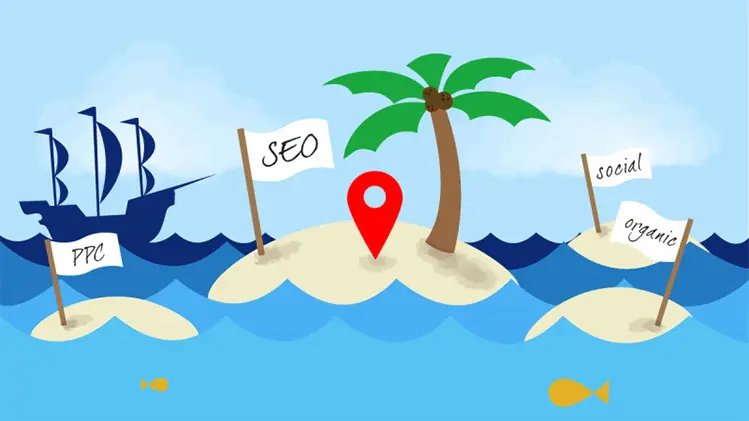
Whether you’re going to be selling imported baby cribs from a distant factory in Hong Kong, or becoming a Bitcoin millionaire by investing in cryptocurrencies, you’re going to have to hone a few select skills. While each method of making money online will favor certain skills over others, they’re all highly useful.
These are the skills that, if I was 16, I would drop out of highschool and begin to learn. Unfortunately our school system is based off of the Prussian learning system, which was created to churn out good workers—not good thinkers. These skills are invaluable, because they’ll teach you how to think, not just how to follow orders.
- Search Engine Optimization
- Marketing
- Systems Thinking
- Modeling
Search Engine Optimization is crucial if you’re going to be selling anything online. What, you think that just because you made some damn website millions of people are going to automatically come flocking there? Hell, no—there’s literally billions of websites on the internet and you have to learn how to make yours get seen.
The second skill is marketing. Like it or not, your product doesn’t matter. Let me say that again: your product doesn’t fucking matter. What matters is the public PERCEPTION of your product. It doesn’t matter if you poured your heart and soul out into some incredible 5,000 hour video course. If the public doesn’t see the value in it, you won’t sell a single copy.
The third skill, systems thinking, is a little bit difficult to understand—but that’s why it’s so important. In a nutshell, systems thinking is the ability to analyze complex systems with interconnected, interdependent components, and to understand how all of these components impact one another, and how changing one will affect the others. This will make more sense later.
Lastly, there’s modeling, which is perhaps the most important skill on this entire list. Literally 80% of what I do is modeling, maybe more. Modeling is accountable for nearly all of my success in life, with EVERYTHING from fitness to earning money. So, what is this magical skill? How does it work?
It’s simple. Modeling is when you find somebody who’s successful, and do what they do. That’s it. There’s no fancy tricks or secrets, just good old fashioned hard work. This seems so simple, yet it always AMAZES me how dumb most people are. If somebody else has had success, then why the FUCK wouldn’t you do what they’re doing?
Search Engine Optimization (SEO)
I was talking to a friend the other day who was telling me he was going to start a website. The way he said it sounded all official—like this was some sort of a big deal, and once he made it, he’d be a millionaire. Well I hate to break it to you guys, but starting a website is only 1% of the battle.
Sure, it’s better to start one than to not start one—but do you think that millions of eyeballs are just going to find your blog when there’s literally billions of other websites out there competing for their attention? Of course not. Building a website is the first step, but making sure it gets SEEN is the next step.
This is what SEO does. In a nutshell, it’s learning how to crack Google’s algorithm so that your website gets featured on the first page of a search result. This is by far the most important skill for any man trying to do business in this era, because without it, not a single person will click onto your website.
There’s plugins you can use to help you with this, like Yoast (the one that I use) but ultimately you’ll just have to go the hard way and learn it for yourself. I’ve spent hours and hours reading through dense literature and learning about terms like “keywords,” “SERPs,” and “Ahrefs.” This is necessary, though. It has to be done.
The most helpful resource to me was the MOZ guide to SEO. While it certainly took a LONG TIME for me to read through it and understand it, once I learned how to crack the code, things only got better and better. SEO is one of those things that takes a long time to master, but if you can get it right, you’ll have payoff for YEARS to come.
Marketing (Copywriting, Branding, etc.)
Now that you’ve got a bunch of blog posts that are showing up in Google’s search algorithms, you’ve made it, right? You’re just going to sit back and relax while millions of people click onto your website and buy your product, right? Wrong. I hate to break it to you, but nobody is going to buy a damn thing unless you market it properly.
People don’t want to spend money unless they think something is going to give them value—it’s that simple. Do you have an extra $47 just sitting in your back pocket, that you’re eager to spend on something? Well, admittedly some people do, but most people DON’T.
After I’d mastered my SEO for Masculine Development and had a couple products up, I was surprised that I wasn’t making more money. Sure, I was making maybe $50 a day or so, but I had a few thousand people visiting my website each DAY! Shouldn’t I have been earning more?
Well luckily, I bumped into a very smart marketer who showed me what I was doing wrong. See, it’s not enough to just have a great product…you have to learn how to SHOW OTHERS that it’s a great product. And that’s exactly what he did. He showed me how to market my product.
Just like that, within a matter of weeks, my passive income from eBook sales had shot up nearly 500%. Just from changing around my marketing a bit—adding in some new pictures, some bonuses to go along with my products, and changing the sales pitch. This is the power of marketing, guys…and if you don’t know how to do it, you’re screwed.
Systems Thinking (The Most Important of All)
The first time I’d ever been exposed to the idea of systems thinking was in the book “Seeking Wisdom: From Darwin to Munger,” and I have to say I wasn’t impressed. I didn’t really understand the concept, because I had no practical application for it. A few years later though, I can’t believe I felt that way at the time.
See, any business out there is a complex system. I don’t care what the business is—it could be Tony Robbins’ company, it could be an investment firm, it could be a Toys R’ Us, or it could be a damn cocaine selling business. Every single business out there is a complex system.
Every single business out there is a complex system, comprising of a number of different “cogs” in the machine:
- Products
- Marketing
- Distribution
- Finances
- Branding
Furthermore, each one of these “cogs” has a number of miniature cogs within them. Take the term “marketing.” It sounds simple enough, right? Wrong—you’ve got graphics, advertisements, niche audience, sales pages, lead magnets, and more. And even beyond this, it becomes more complicated.
Just your graphics alone can be incredibly complicated. What’s the click through ratio for your designs? Where are you going to put them? Are you doing split testing? What colors convert the best for your audience? Do you have any idea how much money you’ll have to spend to answer these questions?
Okay, so after all of this—after all of these different aspects of your business, from your sales funnels, to your email marketing, to your core value statement, to your cash flow, to your marketing and advertising…you must understand how all of these things operate TOGETHER. That is systems thinking.
Something way over in left field, like the ads that you’re putting on a late-night TV station 4,000 miles away, could have a MAJOR affect on how something else, say your conversion ratio on a new product, turns out. Learning how each and every one of these little cogs operates together is systems thinking…and believe me, it’s not easy.
Small little mistakes I’ve made, that you would never think are a big deal, have cost me literally thousands of dollars. Just a tiny error in something seemingly completely unrelated to your sales pages, can cause MASSIVE blow back and put a major dent in your sales for weeks, months, or even years to come.
Modeling (Learn to Copy Success)
Do not take these words lightly: modeling is the most important skill that you can learn if you want to succeed in anything. I’ll repeat this again—modeling is THE MOST IMPORTANT SKILL on the face of the earth, and if you don’t master it, you will not succeed at anything important.
Far too often do I see men trying to “blaze their own path,” and “do their own thing.” This is great, and there’s certainly something to be said about going your own way and learning through experience. It’s important to turn away from conventional advice sometimes, and simply do what you believe to be the right thing.
Yet even so, when you see somebody who has something that you want, whether it’s the body that you want, the money that you want, or the women that you want…why not model them? Success is a bitch, believe me when I tell you that. It’s not going to come easy, and other men have learned this before you, and figured out how to get it. So why not model them?
When I first started Masculine Development, I had no idea what I was doing. At first I tried just “doing my own thing” and do you know what results I had to show for it? Nothing. Nada. Zip. Zilch. Then, however, I started “modeling” other famous blogs—can you guess what this did for my success? It shot through the roof.
[thrive_leads id=’13220′]
I didn’t know how I should design my blog layout? No worries, I’ll just look at some other blogger who’s earning seven figures and try to mimic his design. I can’t figure out how much to charge for a product? No worries, I’ll just look at other similar bloggers in my space and see how much they charge.
This is one of the reasons why I love the Tai Lopez 67 Steps program. Even if you’ HATE Tai Lopez, you can’t deny that he’s made literally MILLIONS of dollars from online marketing… so why the fuck wouldn’t you just copy what he’s doing, to get his level of success?
Modeling is extremely powerful, and without it I wouldn’t be where I’m at. When I first started working out, do you think I just went with my “gut feeling”? NO! Of course not! I researched what the pro bodybuilders were doing, listened to my jacked friends, and modeled others who had success before me. This is common sense.
“But Jon isn’t that copying?” someone might ask. You’re damn straight it is. When something’s not broke, why the hell would you fix it? Success is simply putting your own spin on something that other people have done before you…and I don’t care WHO it is that we’re talking about, if they’re successful, they modeled someone before them.
Do you think Steve Jobs just “magically” came up with Apple? Fuck no. He learned from programmers before him, he had mentors, he had copywriters and marketers who learned from companies before their time, he studied business books and learned what worked for other people…he modeled like hell, and the results show this.
This doesn’t mean to STEAL from others. You still want to have your own unique product, and put your own unique spin on things—but in order to break the rules, you have to know them in the first place. Model others who are successful to learn the rules, and THEN once you understand the rules, you can break them.
3 Steps to Diversification
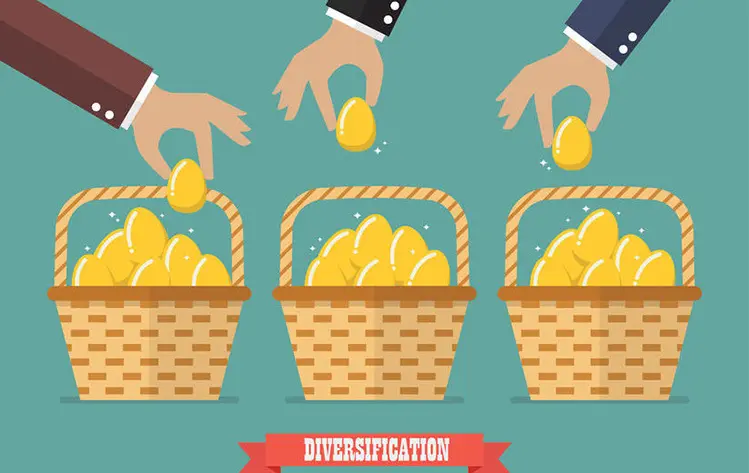
One of the first lessons I learned as a kid, was that you never want to have all your eggs in one basket. While the old saying may have become a cliche, it’s become one for a reason—it’s true. Any time you put 100% of your time, effort, or resources into a single thing, you’re opening yourself up for a major smack in the face.
Why? It’s simple—things don’t always work out. Sometimes random shit happens, like the economy tanks. Maybe a competitor comes out with some crazy new product or distribution method that completely puts your finances underwater. Maybe Bitcoin tanks 50% like it did in December, and because you don’t understand technical analysis, you couldn’t see it coming.
Whatever the reason may be, you ALWAYS want to have multiple streams of income. Although you’ll obviously have to start with just one source of income, and then learn how to scale it up, eventually you’re going to need to diversify your income. I personally have 2-3 solid sources of income, and then a bunch more on the side.
For men just starting to free themselves from the shackles of a full time job, I recommend diversifying your efforts into these three sources for your income:
- Investing
- Your Job
- Selling Something
The first thing you want to do is start investing money—this is 100x better than savings, because instead of getting a .01% return on your money per year, you’ll get something like a 10% return per year (at minimum). If you follow my advice on investing, you’ll get a hell of a lot more than that.
The second thing you want to do is KEEP YOUR JOB. I made this mistake early on when I started to build my business, but it’s a mistake to get rid of a perfectly well paying job before your business can fully support you. Don’t make the same mistake that I did—simply work less hours, and put more time into your business.
Third, and this is where things get really interesting, I recommend you start selling something online. It doesn’t matter what it is, as long as there’s a market for it. You could sell products on Amazon, you could flip things on eBay, you could sell a course on how to breed dogs, hell I don’t know. Just sell something online.
Eventually you’ll want to quit your job (unless you truly enjoy it) and start getting into other sources of income. Again though, I do NOT recommend you just quit your job and throw caution to the wind. Wait until you’ve got a solid investment portfolio, some passive income, and a good bit of savings before you do that.
How to Invest (Without Losing Money)
Everyone seems to be an expert on investing nowadays, but the fact of the matter is that most people actually LOSE money when it comes to investing. I’ve been in the investing business for approximately five years, and although that’s not a lot, I certainly have seen a lot.
And let me tell you, nothing is more rampant than idiots trying to pass themselves off as experts. Hell, just recently I saw tons of “experts” on YouTube promoting an obvious Ponzi Scheme called “Bitconnect,” and I warned people NOT TO BUY IN. Then, just like magic, the founders vanished with over $1 billion of other peoples’ money.
If you want to learn how to invest, I recommend following some of these high quality guides:
- Subscribe to Cedric Dahl’s channel on YouTube
- Read my guide on Investing in Cryptocurrency and learn why NOW is the time to buy Bitcoin
- Consider buying a subscription to Motley Fool, which I consider to be the best resource for stock investing
Learning how to invest is going to take a long time, and you’re going to lose lots of money on the way to your success. I recommend starting with very little money down, and remember to only invest what you can afford to lose. Don’t fall for scammy $5,000 programs or any of that nonsense.
As of now, I believe that cryptocurrencies are the hottest investment. I believe that this phenomena will only improve as time goes on, because even though we recently experienced a Bitcoin crash (in December of 2017), I believe that we’re REALLY going to see incredible things for Bitcoin over the upcoming years.
Managing Your Job (Don’t Get Fired)
When you’re an entrepreneur, you’ll likely have to bite the bullet and get a reliable job (for now). Your goal here should be to get a job that pays well, but most importantly allows you enough FREE TIME to focus on your own endeavors. Earning six figures is great, but if you’re working 80 hour weeks to do it, then it ain’t worth it.
Lots of entrepreneurs turn to freelance gigs when they first start off, because they’re relatively high paying, they’re easy to find, and you can set your own hours. As I mentioned in the introduction, this is how I started out—by doing cheap gigs on Fiverr.
The higher paying version of Fiverr is Upwork, which I personally use to find graphic designers. It’s a great resource for anyone who wants high quality designs, although it does cost more. I typically pay $50 to $400 per gig, depending on what they’re designing, but regardless this is a great replacement income for you.
Eventually, you’ll want to start scaling out of your job or whatever gigs you’re working. Start putting more time into your business, and as you are able to do so, you’ll start to hit the exponential part of the J curve. This is where your business will really take off, and when you can finally quit your job for good.
Sell Something (High Profit Margins)
If you REALLY want to get wealthy, you’re going to have to sell something. Yes, even those wealthy investors like Warren Buffet and George Soros sell something—they sell high percentage returns to their clients. If you want to get rich, you’ll need to sell a product or service of some sort.
I can’t tell you which to go for, but I’ve already made my thoughts clear. I personally prefer selling information products, because they’re easy to make, don’t require a lot of logistical hassle, and you can sell them to anybody with access to the internet.
For those of you looking to sell things, I recommend the following:
- Read my article on “How to Sell eBooks for Passive Income“
- Watch Jungle Scout’s 22-Part Series on How to Sell Products on Amazon
Selling physical products can be very profitable, but in my experience it’s a lot more hassle. When I first started selling eBooks, all I needed was a service called eJunkie and an account with PayPal. This cost me a total of $5 per month, and boom—just like that, I was selling eBooks.
After a while, I scaled up and started using Click Funnels, which allowed me to track statistics, do split tests, and create up sells/bonuses for people to buy. While this costs more, ranging anywhere from $97 a month to $297 a month, it’s worth it if you’re doing a lot of sales.
How to Scale Up
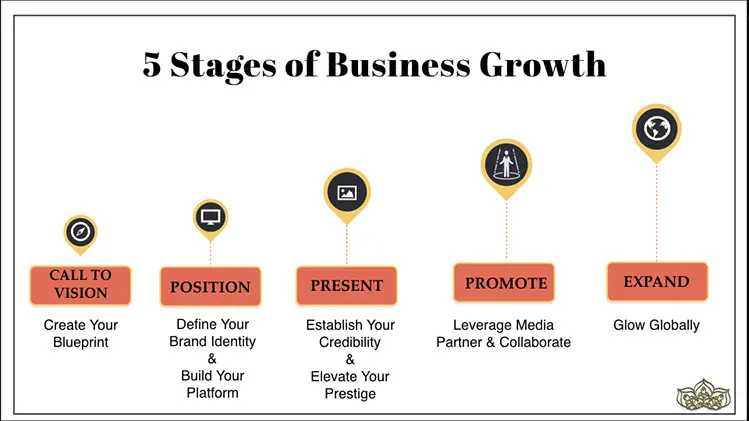
This brings me to my next topic, which is basically how to grow your business/income. Unfortunately it’s not an easy process, and there’s going to be a lot of hiccups along the way. That being said, you actually don’t even WANT it to be easy, otherwise everyone would be Dan Bilzerian—and then nobody would be.
Tons of businesses can reach the $1,000 a month point, but only a fraction of them can reach the $10,000 a month point. Then, only a fraction of THEM can reach the $100,000 a month point. Even fewer of them can reach the $1 million a month point, the $10 million a month point, or even the $1 billion a month point.
Generally speaking, there’s five stages of growth for businesses:
- Entrepreneurial (>$100k/year)
- Startup ($100k to $500k/year)
- Small Business ($500k to $10mil/year)
- Corporation ($10mil to $100 mil/year)
- Behemoth (>$100mil/year)
Scaling up is extremely difficult, because as you grow bigger and bigger, you’ll have to continually recheck your business system and change clients, products, services, marketing, and distribution methods. It’s not a straight line up, but rather a series of jagged ups and downs that gradually get higher.
Let’s liken your business to an aircraft. When it’s flying around, first going just 100mph or so, it doesn’t matter if it’s only 99% efficient. Then say we reach Mach 1, however—all those tiny microscopic knicks in the frame are going to be a problem. THEN, say we’re trying to reach outer space. How much of a problem would those little knicks pose?
The higher and higher you climb, the more you have to tighten up your infrastructure and business system, the less room there is for error, and the more room for failure there is. Yes, scaling up opens up tons of new opportunities for profit, but it also opens up tons of opportunities to screw things up.
Generally speaking, you want to use the most efficient, best system that you can, while still making it financially feasible. In other words, don’t spend a ton of money to ensure you can email 500,000 people a month if your email list is only 2,000 people. Only buy what is necessary, and then some for growth.
Phase 1: Entrepreneurial
In this phase, your number one goal is to simply survive. This is the very beginning stage of your business, and in this stage you want to funnel 100% of your profits BACK into your business. Buy better equipment, better cameras, better hosting, better website design, better products, and whatever else you can possibly think of.
Most businesses don’t even make it past this phase, due to a lack of cash flow. During this phase you’re going to be faced with many threats to your existence, and you will likely have to put in most of the work yourself. The only “employees” you’ll have will be pseudo-employees like freelancers and contractors.
This is when you want to really learn the tools of the trade, and set yourself up for success. Don’t outsource things that you can do yourself—learn how to do them, so that when you do need to outsource them in the future, you can tell whether your freelancer is doing a good job at them or not.
Phase 1 is where the “sweat equity” is put in, to bring about a greater investment later on. Since you don’t have much access to resources at this point, the only thing you really do have to give your business is hard work and time. Don’t worry though, it will pay off—so long as you can survive and keep yourself above water.
Phase 2: Startup
This is where things start to get interesting. Here’s where you start to experiment a little bit, and taste your first bits of success. Now you’ll have some free income to spend on growing your business. Now is the time to spend that extra money on hiring employees to free your time up.
In the words of Tim Ferris, outsourcing is your friend. At first you’ll have to do a lot of the petty work required of entrepreneurs, but eventually you’ll have enough money to outsource a lot of this to other people. Even if it’s only an online digital assistant at first, that’s still better than nothing.
Phase 2 is all about not just surviving, but upgrading your systems to prepare for the upcoming growth. Start playing around with different marketing strategies, email clients, add new products to your lineup, and more. Stick with what works and disregard the rest.
Some people are quite comfortable in this phase—in fact, this is where Masculine Development (my blog) is sitting at right now. I don’t plan on moving it much higher, although I may do so when the time arises. That being said, for those of you who want to make even more money, read on.
Phase 3 and Beyond
Although I’ve never personally built a business with official employees aside from myself, I’d like to offer you a few pearls of wisdom before I conclude this (albeit, epic) article. First off, you’re never going to get past phase ONE unless you educate yourself.
I recommend you read the book Scaling Up by Verne Harnish. Although this book is filled with technical jargon and dense business terms, it’s an absolute must for anyone serious about scaling their business up to the $1 million mark and beyond.
Be sure to get mentors along the way, and bring as many experts on board as you possibly can. You will not get very far without experts, PERIOD. This is where networking and modeling will come in—you need to bring in as many consultants, pros, experts, and gurus as you possibly can.
There’s a reason why phases 3 and beyond are marked by their rapid increase in the number of employees. While Pareto’s Law does dictate that only 20% of the employees will do 80% of the work, that top 20% grows substantially, because it becomes FILLED with experts!
You’ll need to bring in experts on marketing. You’ll need to bring in experts on branding. You’ll need to bring in experts on sales, on customer relations, on distribution, on business infrastructure, and everything else. You’ll need to bring in experts on everything, and master the four skills mentioned if you wish to get to phase 3 and beyond.
Parting Advice From Jon
In short, there’s no excuse for you to be in financial ruin…even if you’re a college dropout. The times have changed, and 16-year-old kids living in their parents house are making $50 million just by creating the hottest new messaging app or by designing some weird computer software.
In the words of Reddit co-founder Alexis Ohanian: “The 21st century will be made, not managed.” The time of nosy, micro-managing bosses who breathe over your neck at everything you do is gone—and the time of solopreneurs who get everything done in a quarter of the time by themselves has arrived.
This is by no means the end of your educational journey. If you want to become financially successful, it’s paramount that you continue to read, read, read, and read. Learn everything that you possibly can about your industry—subscribe to YouTube channels that help your growth (like mine).
I recommend you take action right after reading this article, if you’re truly serious about making a change in your financial life. Far too often, we make a goal to do something “tomorrow” or “in a week,” but that time never comes around. Then, before you know it, you’re having a midlife crisis at 45 and wondering why the hell you didn’t start sooner.
Be sure to keep in touch and ask any questions you have in the comments section below. I always love engaging with my readers, whether it be about the topic of this article (making money) or other topics such as dating advice, fitness advice, and spiritual growth. As always, I hope you guys enjoyed the article…AND, I’ll see you next time!









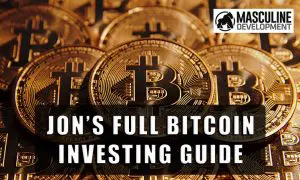
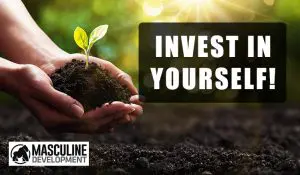
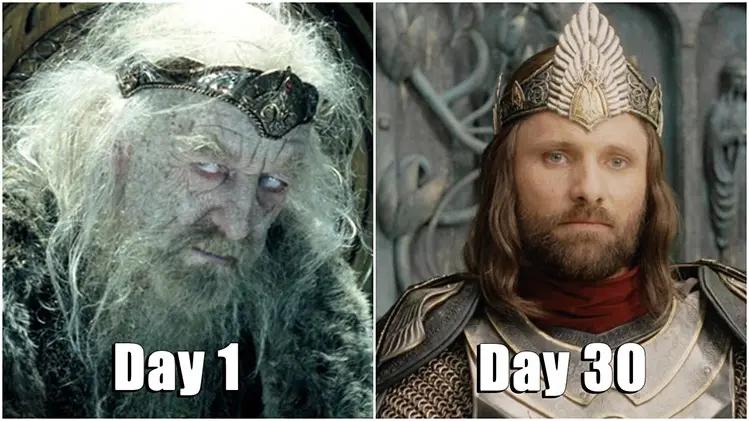



This must be one of the most INSIGHTFUL posts I have ever read. Thumbs up.
Haha, thanks man. I appreciate it.
I’m 42 and currently working as an English teacher in China. I’m looking to find a way to generate other sources of income, but I still don’t know where and how to start. I’ve bought some of your other e-books. However, I’m still stuck at this particular impasse. Can you help me?
Well I’m actually creating a cryptocurrency trading product right now, it’s launching later this month. Bitcoin, Ethereum, Litecoin, and other cryptos has been game changing for me, but it depends on you.
For me, the question to ask yourself is simple: “What are you good at?” Find a way to monetize that. Once you start putting on the business goggles you see everything as a business opportunity.
Great article. Love your stuff
Great article. Love your stuff
Thanks, my dude!
Hi Jon,
Finding ways to make passive income online has been on my mind for awhile, thanks for sharing your story and some different ways to earn extra money. I make about 65k a year working an office job, at first I was stoked because its a good job and company, but after 2 years I realized that am tired of sitting in a cubicle and trading time for money. Like you I enjoy the freedom to do what I want when I want, I just haven’t found that one Idea or business model to get things going. I appreciate you going in depth on this topic and much success to you going forward.
Cheers,
Adrian
Well the good thing is you have a solid income that you can use to experiment with.
So do you not do anymore consultations Jon?…because I was thinking of getting 1 if you do since I have a good amount of questions for you. Thanks
Shoot me an email, man. jon@masculinedevelopment.com
Do you recommend an antifragile outlook in regards to jobs? Basically to have a liveable but low-stress job during most of the day so that at night you can focus hard on your business? I’m thinking of becoming a barber and at night focus on starting and growing an online service business.
Totally. That’s what I did for a long time. It’s also good to have a really high paying job though. I was lucky enough to get a high paying job as a writer from home, which did great things for my bank account while letting me work on MD in my free time.
I am kind of stuck in the transition zone right now. I have a job right now that I want to dump immediately because it sucks too much physical energy and interferes with my goals like fitness.
I’m trying to decide which direction I want to go and what to do as a business. I was considering becoming an Uber driver temporarily because I could set my own schedule which would work great for working on a business, just unsure if it pays enough. Luckily I can survive for a while on savings.
So my plan is that and I’m also investing in crypto to make a side income while working on whatever business idea I decide to take action on.
Thoughts?
Definitely start investing in crypto, man. Now is a very good time – within a year you’ll be able to live off the interest, probably.
Look into starting your own business as well, even if you only do one thing to accomplish that goal each day…it’s a hell of a lot better than nothing.